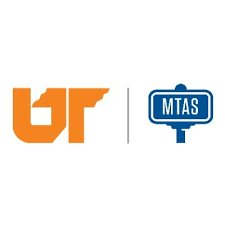Thumbnail: The Greater Memphis Chamber supports a conversation about consolidation, but has taken no position on the merger of city and county governments. Chamber officials have announced that they will undertake research on the pros and cons of metro government. To that end, here’s a report by the Municipal Technical Advisory Service, part of the University of Tennessee’s Institute for Public Service.
**
The Municipal Technical Advisory Service (MTAS) is part of the University of Tennessee’s Institute for Public Service. It works with cities and towns of the state to improve governance and service delivery. It is considered the definitive source for information involving cities.
The following profile of consolidated government by MTAS was reviewed and updated by the agency in July:
METROPOLITAN GOVERNMENT
If you stop people on the street and ask them how they feel about metropolitan government, 75% of them are likely to tell you that it sounds like a good idea. If 75% of the people think that it is a good idea, why do you suppose that there are only three consolidated, or partially consolidated, governments in the State of Tennessee? Perhaps we will answer that question as our discussion progresses.
Consolidation of cities and counties is not a national trend. The first consolidation occurred in 1805 when the City of New Orleans and New Orleans Parish were consolidated. Of the 3,069 counties in the United States, only 31, or 1% are consolidated, and folks a 1% success rate does not establish a trend toward consolidation. Between 1921 and 1996 there were 132 formal consolidation attempts, but only 22, or 16% were approved. If there is a trend, it is clearly against consolidation.
Let’s take a look at the process of consolidation in Tennessee. State laws allow cities and counties to form a metropolitan government comprised of the county government, the county’s principal city, and other cities in the county, should they elect to participate. Of the three metropolitan governments in Tennessee, only two, Lynchburg/Moore County and Hartsville/Trousdale County are complete consolidations. Nashville/Davidson County is not a complete consolidation because Bell Meade, Forrest Hills, Lakewood, Oakhill, Berry Hill, Goodlettsville (partly in Davidson and Sumner counties), Brentwood (partly in Williamson County), and Ridgetop (partly in Robertson) elected not to become a part of the metropolitan government. A Bedford county consolidation would include the county, City of Shelbyville, and either or both of Bell Buckle and Wartrace, should they elect to participate.
The Tennessee Advisory Commission on Intergovernmental Relations (TACIR) has a publication that explains how to form a metro government. First from $25,000 to $50,000 is appropriated by the county and it is usually paid out to a private consultant to assist with the consolidation, and then a charter commission is appointed by the county commission and the principal city and then a charter is prepared to organize the new government. In southern middle Tennessee referendums in Coffee, Franklin, Lincoln, and Warren Counties have turned down metropolitan governments.
Tennessee law provides for one or two urban service districts to replace the city and a rural service district for the remainder of the county. Rural service districts generally provide fewer services than their urban services counterpart. Several years ago, for example, I lived in Metro Nashville/Davidson County, in the rural services district. Metro did not provide rural fire protection or garbage collection. As a homeowner, I paid a private provider for these services. It is also important to note that city residents cannot by simply voting in a metropolitan government absolve themselves of current debt obligations. All debt that is currently owed by a city will be repaid by the city residents alone, whether a part of metro or not.
After the charter is formed and debated, a referendum is held, and the voters decide the fate of the new charter. If such a vote were taken in Bedford County and voters approved it in the county and in the City of Shelbyville, the referendum would pass. If the referendum fails in either the county or the City of Shelbyville, metro fails. If it is approved in the county and in Shelbyville, Bell Buckle and Wartrace may elect not to become members of the consolidated government.
What are some of the pros and cons of consolidated government?
Pros
- There is a general perception that consolidated government is more efficient. The efficiency of consolidated government has not been verified. Which do you think is the more efficient organization in Bedford County—the county that has a large governing body and is highly fragmented, with five constitutional offices that must be preserved in a consolidated government, with elected department heads and a somewhat blurred responsibility between policy and administration, or the City of Shelbyville, with an elected Mayor, a rather small governing board, a professional manager and appointed department heads that are hired on the basis of merit? The fact is that establishing a metro government abolishes an efficiently organized city government and replaces it with a rather archaic county structure that has changed but little since the 18th and 19th centuries, for which it was designed.
- Proponents maintain that consolidated government will bring about improved services. Fire protection, school transportation, garbage collection, and planning and zoning are often cited as examples where services will be improved. Let’s see how this might work. The City of Shelbyville has a Class 3 ISO rating, for fire service. The county has a Class 9 fire service. Class 1 is the best class and class 10 is the worst. We are going to make this a single unified service. It is very likely that the Class 3 service will not improve, and the Class 9 service out in the county will improve provided additional money is spent on equipment and personnel. Now let’s look at garbage collection. The City of Shelbyville has door to door residential collection. The county does not. To improve this service, you would likely look at door to door collections out in the county, and that requires more money.
- Improved police service. Cities exist to provide a higher level of services than is generally found in the county or to provide services not provided by the county. The City of Shelbyville has 39 police officers, and Bedford County has 30 deputies. Upon consolidation, do you think additional police officers would be added to the city or the county? If they are added out in the county, this service will be improved as the result of spending more money. I think that it is fairly clear that one of two things will occur upon consolidation, either more dollars will bring improved services or all of the county will drop toward the lower level of services.
- For those services such as education, ambulance service, and other similar county-wide programs, city taxpayers pay an equal amount as the county taxpayer. These services would not likely be improved due to the visibility of other services that are currently provided at different levels.
- Planning and zoning would be better coordinated if done on a county-wide scale. Combining city and county planning services would likely provide an improved and more efficient service.
- Consolidation would likely bring about better utilization of resources in accounting, billing and annual audits.
- In some areas there would be less duplication. Road and bridge construction and paving; fire protection; animal control; purchasing; elections; and tax collections.
- One stop for economic development. It is said that having only one stop to make in a county makes all of the difference in recruiting new industry. The fact is that being prepared and having adequate financial resources makes all of the difference. You already have one stop economic development without consolidation.
Cons
- There would be a change in the structure of local government. That change would be to a structure that is highly fragmented, and a large governing body blurs accountability and responsibility. As previously mentioned it may not be a complete consolidation.
- Distribution and control of resources would be affected. Higher taxes paid in the urban service district would help pay to raise the level of county services and would not significantly benefit the city residents. State shared taxes that are received by the city each year could easily wind up being spent in rural areas of the county.
- There would be a lowering of the level of services.
- Citizens would likely be less satisfied with services. Surveys show that citizens are generally satisfied with their local government.
- Decision-making is more difficult. Metro Council in Nashville has 42 members, and this makes decision making difficult.
- There is no clear policy and administration demarcation.
- There is a loss of sense of community.
- Surveys show that where governments have been consolidated taxes increase, because the consolidated government will begin to expand the quantity of services.
- What is termed a “consolidation” is in fact abolishing one or more cities in favor of an outdated county government. In effect the City of Shelbyville’s name would be changed to that of “urban services district.” The urban services district is authorized to annex into the general services district (TCA 7-2-108); to receive state shared taxes based on the city’s population; has a three member urban council to levy a property tax to finance urban services. There would still be two tax rates, one for the urban services district, and one for the general services district.
- Many of the so called improvements in services that may be brought about by consolidation are currently being provided jointly in cities and counties under the Interlocal Cooperation Act. Examples are police, where a small city contracts with the sheriff’s department for police protection; cities contract with counties for finger print services; animal control is often provided jointly by cities and counties; fire service may be jointly provided; solid waste disposal is another service that may be jointly provided; and dispatch services are often provided on a county wide basis.
Summary
Some state agencies think that metropolitan government is “visionary.” The truth is that consolidation in Tennessee amounts to abolishing the cities within a given county and providing the services through an antiquated governmental structure designed for the eighteenth century, with elected department heads and blurred responsibility between administrative and legislative duties. A consolidated government is not likely to be any more efficient than the current service delivery system, and in fact, taxes may well increase as the result of consolidation. Studies have shown that services tend to expand in metropolitan governments.
An attempt to establish a metro government for Shelbyville and Bedford County is likely to fail. Nationally 84% of all such attempts fail. In Tennessee only 3% of the state’s 95 counties are consolidated.
MTAS is not here to advise your city not to participate in the establishment of a consolidated metropolitan government. We do think, however, that it is prudent, if the city desires to pursue such an alternative, for the city to carefully study the benefits versus the costs, and this is hardly ever done. After careful study, the city might or might not elect to participate in the formation of a metropolitan government. It is clearly to the city’s advantage to understand what is being formed, how it is likely to perform, what effect it will have on the level of services provided; and increases or decreases in taxes as the result of the consolidation.





